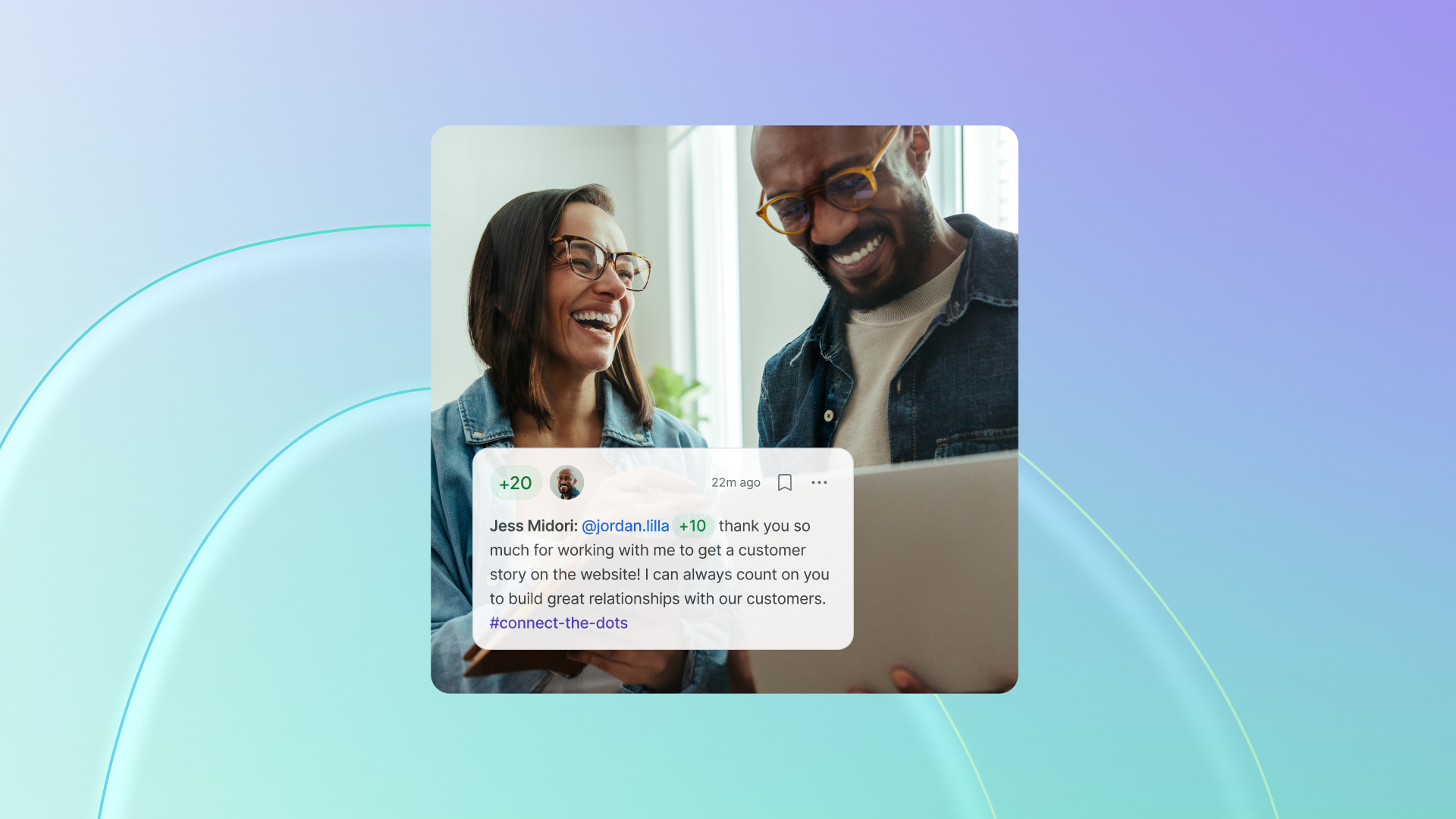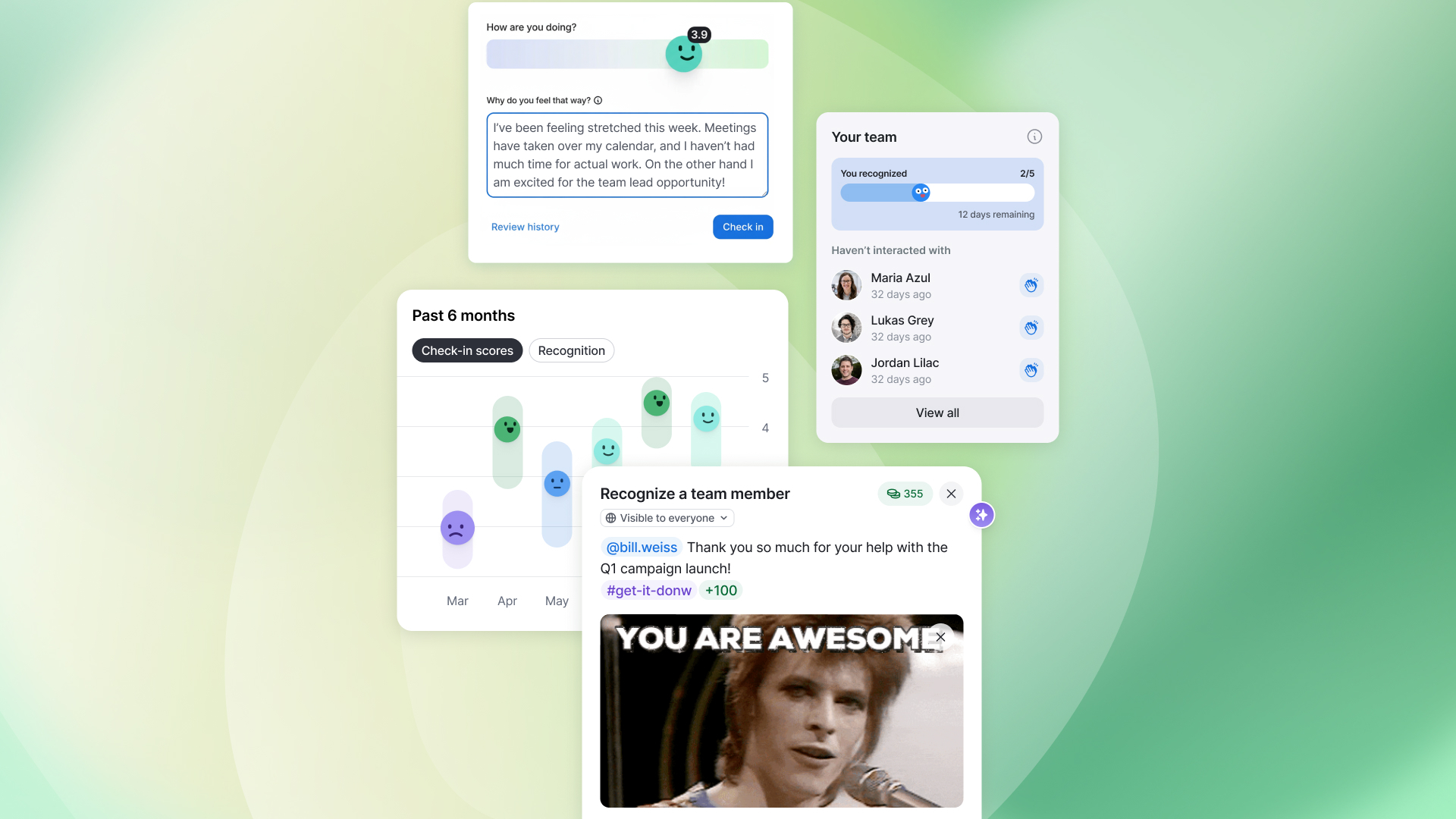Should AI Write Our Recognition Messages?

Why human connection still matters in the age of automation
Picture this: It's 6 PM, you're wrapping up a day packed with back-to-back meetings, and your recognition platform cheerfully offers to send personalized appreciation messages to everyone you interacted with today. Just one click, and boom – you're suddenly the most thoughtful colleague in the office.
Sounds tempting, right? For many managers drowning in daily responsibilities, this feels like a productivity dream come true. We might even see our recognition volume skyrocket and create richer, more detailed messages. After all, we've made it effortless.
But here's where I want us to pause and ask: What's the real goal here?
The birthday card test
Let me share an analogy that changed how I think about this. Remember birthdays before Facebook? When someone remembered your special day, it felt genuinely meaningful because they had to make the effort – checking their physical calendar, remembering on their own, choosing to reach out.
Now think about the spectrum of birthday wishes today: the Facebook notification reminder, the quick "HBD!" comment, the thoughtful text message, the handwritten card. We all instinctively know these carry different weights of meaning. But why?
It's not just the medium – it's the effort and intentionality behind it. When your best friend writes you a heartfelt card versus when they send you a generic Facebook message, the relationship feels different after each interaction. The closer the relationship, the more that personal touch matters. In fact, getting a generic message from someone important to you can actually damage the connection.
What this means for workplace recognition
If our goal with recognition is building genuine human connections at work – and let's be honest, that's what creates thriving cultures – then we need to be incredibly thoughtful about how AI fits into this picture.
Sure, AI could theoretically craft perfect messages. With enough context about the receiver (their work, preferences, recognition style), the giver (their tone, typical message length), and their relationship (manager-direct report, cross-functional teammates), AI might even fool people into thinking a human wrote it.
But here's my take: Even if AI writes flawless recognition messages, knowing they're probably auto-generated creates distrust and makes even perfect messages feel hollow.
Human relationships in the workplace aren't just important – they're becoming more critical in the age of AI. As automation handles routine tasks, the uniquely human elements of empathy, genuine appreciation, and personal connection become our differentiators.
The right way to use AI: keeping humans in the driver's seat
This doesn't mean we should ignore AI entirely. Our recent features show how to harness AI while preserving what makes recognition meaningful:
The Gratitude Gauge acts like a writing coach, not a ghostwriter. You start with your own words and ideas, then get real-time feedback on specificity and genuineness. The AI suggests improvements, but you remain the author of your message.
Recognition Nudges work like a thoughtful friend reminding you to send that birthday card. We give managers specific, contextualized suggestions for recognizing team members, but we intentionally add friction to the process. Why? Because that effort – choosing from options, adding personal touches, editing the message – is what signals care and intentionality.
Achieve Integration documents conversations that already happened. When a manager verbally recognizes someone in a 1:1 and then Bonusly helps translate that into written recognition, it's like your mom calling for your birthday and then adding to your Facebook thread – the personal moment happened first, and the public recognition amplifies it.
The bottom line
The magic isn't in the perfection of the message – it's in the intention behind it. Just like handwritten birthday cards matter more than store-bought ones not because of superior penmanship, but because of the time and thought invested.
As we continue building AI-powered features, our north star remains clear: enhance human connection, don't replace it. The future of workplace recognition isn't about AI writing for us – it's about AI helping us write better, more meaningful messages ourselves.
Because at the end of the day, your colleagues don't just want to know they did good work. They want to know that you noticed, you cared, and you took the time to tell them so.
Learn more about how Bonusly uses AI to power meaningful, effective recognition.







